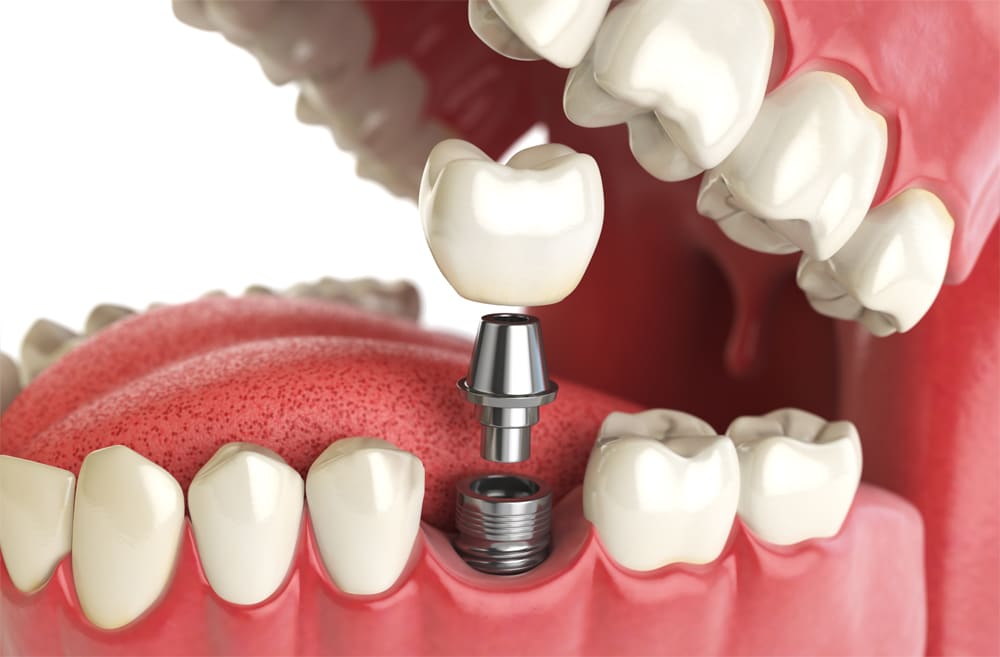If you have one or more missing teeth, there are good reasons why you should correct the problem. You will be able to chew more effectively and avoid possible oral health complications, such as teeth shift and bone loss. And your smile will be noticed – for all the right reasons!
There are a few dental options for correcting missing teeth. They include bridges and dentures, but the best option is a dental implant. Dental implants are the most natural looking and functioning tooth restoration treatment available. What’s more, they are designed to last a lifetime.
What are dental implants?
Unlike bridges and dentures which are dental devices that are attached to surrounding teeth, or worn by the user, dental implants are the equivalent of having a brand new tooth.
Dental implants feel, appear and function just like a normal tooth. They consist of two parts joined by a post (abutment):
- The top visible part of the dental implant is the crown. Crowns are colour and shape matched with your surrounding teeth so that they blend right in – completing your smile.
- The bottom part, beneath the gum line, is an implant which effectively replaces the tooth root with an artificial one. These implants are made from titanium – which is a bio-safe material that integrates with your jaw bone naturally and permanently.
In the first phase of treatment, your dentist performs the dental implant procedure by surgically inserting the titanium implant into your jawbone. Then you wait for a few months to allow healing and bone integration. When the implant has bonded firmly to your jaw bone, you are ready for the second phase of your dental implant treatment – the placement of the crown.
The crown is prepared earlier in a dental lab from an intra-oral scan or a dental mould of your teeth. So all your dentist has to do is join the crown to the titanium implant via the connecting post (abutment) in a single treatment session.

How are dental implants better than bridges and dentures?
Dental implants are firmly integrated into the jaw bone, giving them strength and stability. They also keep adjacent teeth in place.
Bridges, on the other hand, can cause damage to supporting teeth that have the potential to shift. If you’re wearing dentures, they may slip or even fall out as you eat or talk. And then there is the nightly routine of removing dentures before bed!
However, dental implants aren’t for everyone. You need a healthy jaw bone to hold the implant/s so a dental consultation is necessary to determine if you are a suitable candidate for dental implant treatment.
For more information about dental implants, or to book a consultation, call our friendly team here at Choice Dental on 07 3809 3320.












